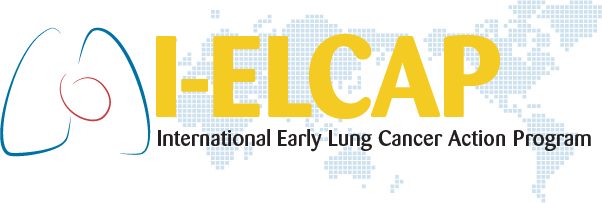Previous Meetings
The 6th International Conference on Screening for Lung Cancer
Friday, April 5, 2002 to Sunday, April 7, 2002
The American Hospital of Paris International Affiliate of Weill Cornell Medical College and New York-Presbyterian Hospital
Neuilly sur Seine
France
Agenda: 6th Conference Agenda
Mission:
The broadest mission of these Conferences is the collective pursuit of avant-garde understanding of the issues surrounding screening for lung cancer, the broadest subissues being early diagnosis and early intervention. Any given Conference focuses on issues that are particularly topical at the time.
As always, we provide an update on research and practice of screening for lung cancer. In addition, we focus on methodologic issues in view of the current controversy about mammography screening. Thus, issues surrounding the results of these randomized controlled trials for breast cancer will be addressed. We feel that discussion about these issues is important as the experience in screening for breast cancer should provide guidance in the planning of future investigations of screening for lung cancer. Also reported at this conference will be the efforts in pursuing consensus on the issues of intervention in the context of screen-detected abnormalities, including a possible randomized treatment trial on a subset of suspicious nodules or pathologically diagnosed cases of malignancies with uncertain prognosis.
Consensus Statement:
As a culmination of the previous International Conferences, and in light of the continuing spreading of experimental CT screening, an international consortium, the International Early Lung Cancer Action Program (I-ELCAP) was formed . Its common main protocol has been supplemented by a protocol for obtaining and reading cytology and histology specimens; the associated data forms have also been developed. An important mission of the I-ELCAP Advisory Board is to ensure continued inclusive and productive collaborations of the I-ELCAP with all interested organizations, specifically the EU/US collaboration and the American College of Radiology Imaging Network (ACRIN).
At this most recent Conference, an update of the ongoing and planned studies throughout the world was presented. A proposed collaborative project among I-ELCAP participants to expand the chest screening to include screening for head and neck cancers was presented. The chair of the ELCAP Expert Pathology Panel summarized the review of the histology specimens and pointed out that the screen-detected cancers were generally aggressive ones with evidence of localized vascular, pleural and/or lymphatic invasion. Preliminary results of limited resection of malignancies in subsolid nodules from an ongoing study at the National Cancer Hospital East in Japan was presented, and there was a call for the development of an international registry of Stage I lung cancers. Considerable controversy had arisen about breast cancer screening since the previous conference, despite randomized trials involving 500,000 women in the past 40 years. Thus, an entire session was devoted to a review of these controversies and to ensuing discussion of how to avoid a similar debacle about lung cancer screening.
Two workshops were held. One focused on coordination of the international efforts in the different studies that were imminent. In this workshop discussions were held on how to ensure poolability of the data from the different studies, recognizing that the protocols needed to be kept concordant for this purpose. It was recommended and adopted as a consensus view that it would be advisable to hold semi-annual or annual meetings to discuss suggested protocol changes and to coordinate of these changes whenever possible.
The other workshop focused on issues relating to intervention on screen-diagnosed lung cancers. The first concern was to define and prioritize the interventive issues that we currently encounter. Foremost among these was taken to be the question of appropriate intervention on malignancies in nonsolid nodules. Issues raised about these nodules included whether any intervention is needed, how to quantify the extent of overdiagnosis, and curability by early intervention. These same questions were also raised in regard to small solid cancers. The consensus was that a case registry would be useful for answering these questions and that a protocol for such a registry should be developed.
The question of whether a complete lobectomy was necessary for small, early lung cancers was also raised. It was felt that it would be useful to carefully review the basis for the current conclusion that lobectomy was better than segmentectomy and that the data among the collaborating institutions on those with limited and complete resection should be pooled. The consensus was that a randomized trial comparing complete lobectomy with segmentectomy was not warranted at this time. Similarly, while newer, non-surgical treatment options were discussed, insufficient information was available to recommend trials at this time.
Most broadly, this second workshop recommended that clinical studies addressing interventive issues be encouraged, recognizing that the I-ELCAP network provides a vehicle to enlist interested participants in these studies and that communication among the collaborators would be facilitated by the I-ELCAP websystem. This recommendation was accepted in the subsequent plenary session.
